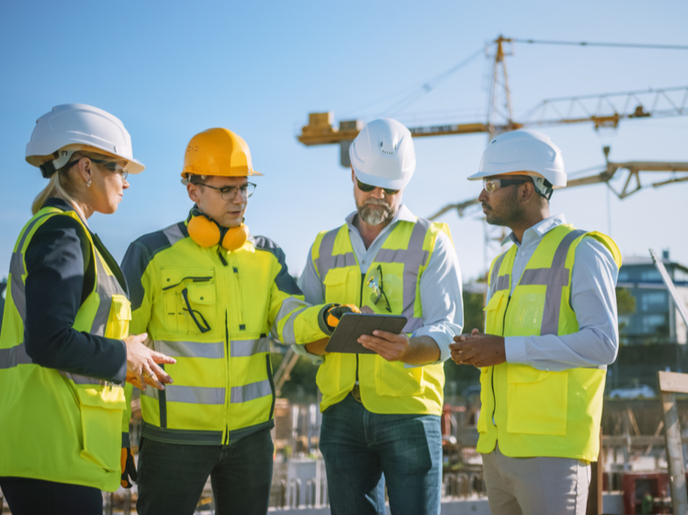Construction skills: leveraging new skills for the building sector to deliver on the European Green Deal
The EU faces a skills shortage in the construction sector, highlighted by the ongoing revision of the Energy Performance of Buildings Directive. Launched in 2011, the BUILD UP Skills initiative is helping to deliver the skilled and qualified professionals needed to transform Europe’s building stock. This will reduce the EU’s overall energy usage and contribute to reaching its climate goals, as outlined in the European Green Deal. One of the key challenges though is the renovation of existing buildings, since the current rate of renovation is only around 1.2 % of Europe’s entire building stock per year. For new buildings, the nearly zero-energy building (NZEB) standards became mandatory in Europe as of December 2020, requiring robust skills from all professionals involved.
Reacquainting you with the BUILD UP Skills initiative
The European Year of Skills 2023 will help companies, in particular small and medium-sized enterprises, to address skills shortages in the EU. It will promote reskilling and upskilling, helping people to get the right skills for quality jobs. The BUILD UP Skills initiative is perfectly placed to support this goal. It has received more than EUR 50 million in funding since its inception, targeting building professionals and companies throughout the entire value chain, public authorities, building owners and tenants. Some 32 countries have been involved in the initiative, with over 70 projects finalised. The first step of the initiative has been to support the development of national qualification platforms and road maps focused on energy efficiency and renewable energy usage in buildings. In a second step, the road maps have been turned into action by projects developing national or transnational training and qualification schemes. Alongside an emphasis on the main new and upcoming challenges relating to NZEBs, such as new materials and products, renewables integration, standardisation and certification processes, the integration of digital skills and in particular the use of building information modelling (BIM), BUILD UP Skills also aims to ensure that the building professionals who do make the time and effort to upscale their skills are recognised and visible on the market. Projects currently funded under the initiative are focusing on ‘trigger mechanisms’, such as one-stop shops, subsidies, awareness campaigns and supporting public authorities with skills-based procurement.
The Horizon 2020 factor
Through the Horizon 2020 programme, the initiative was upscaled, primarily through multi-country project consortiums addressing professionals along the entire building value chain, including designers, architects, engineers, site managers, technicians and installers. In this update of the CORDIS Results Pack on Construction Skills, we showcase 10 EU-funded projects under Horizon 2020 that positively contributed to the success of the BUILD UP Skills initiative and, more indirectly, the wider ambitions and targets of the European Green Deal. Since 2021, BUILD UP Skills has continued to support innovative training and qualification projects as part of the LIFE Clean Energy Transition sub-programme. Three projects are included as they appeared in the original Pack. BIMplement helped deliver on the promise of NZEBs through improved use of building information modelling. CEN-CE established a certification scheme for heating, ventilation and air conditioning professionals. And TRAINEE set up a centre in North Macedonia to grow local skills. A further three projects have been updated. Construye2020_Plus developed training solutions to support a sustainable construction industry in Spain, while CraftEdu developed an e-learning platform for vocational schools in Czechia and Slovakia. And NEWCOM is supporting the construction of NZEBs with new training modules for professionals. This updated edition also contains four new projects. BUSLeague and TRAIN4SUSTAIN worked on pan-European recognition of energy efficiency skills, so that certifications and accreditation are accepted across all EU Member States. HP4ALL developed resources needed to meet the fast-growing demand for heat pumps. And The nZEB Roadshow raised public awareness about the many benefits of green and sustainable buildings through a series of engaging events.



